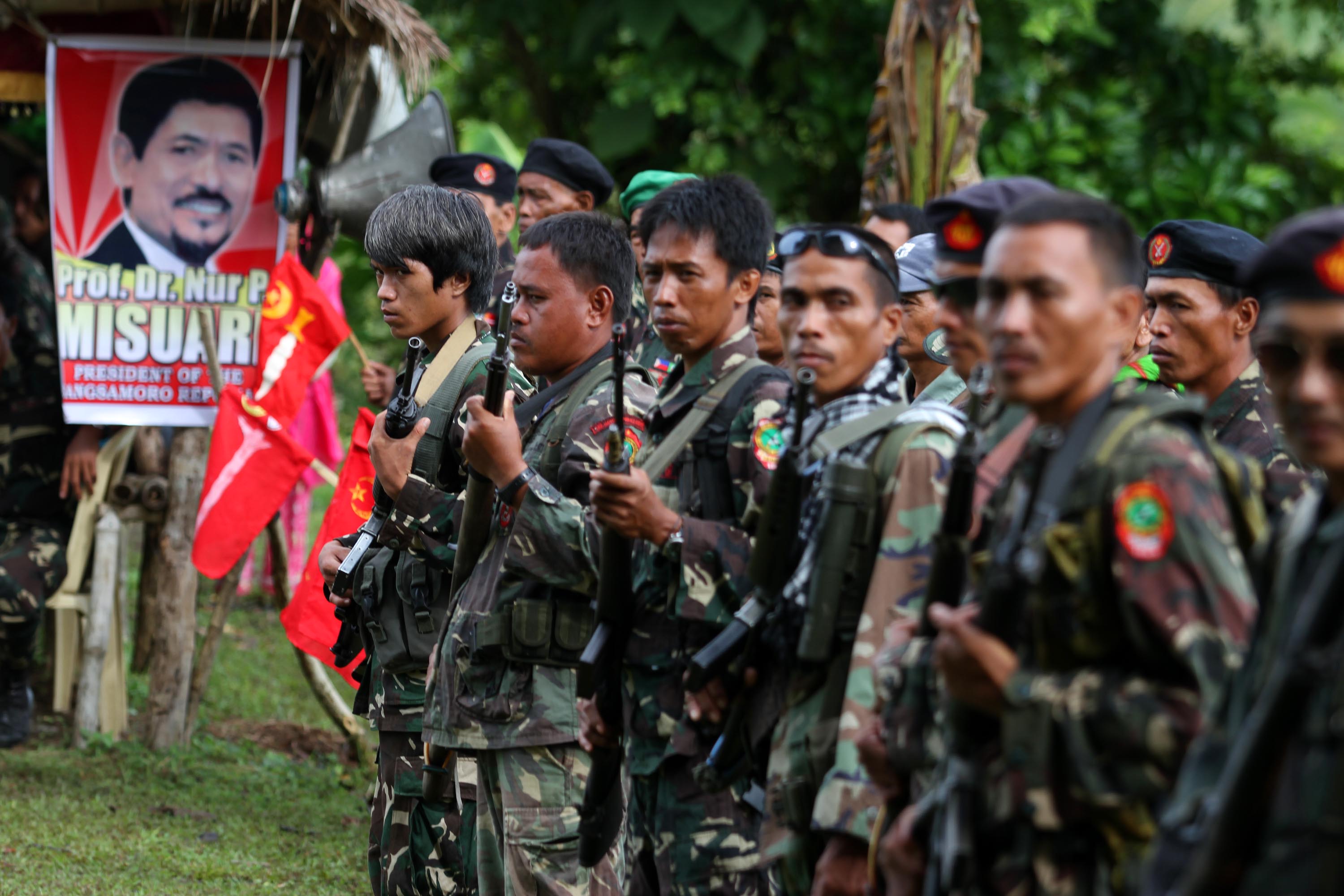In four days of sporadic and intense fighting, the once bustling city of Zamboanga has turned into a battle zone. Tanks patrol deserted streets as heavily armed soldiers hunt Moro National Liberation Front (MNLF) rebels who have infiltrated a half-dozen coastal villages, taking up to 180 hostages they are using as human shields to thwart a military advance. They are accused of torching homes and raping a number of female captives.
The local social welfare department said some 13,000 people have fled their homes and are being sheltered at a gymnasium in the city’s centre, less than 1km from some of the clashes.
The International Committee of the Red Cross (ICRC) and the US Agency for International Development said they were sending essential supplies, including medicines, blankets, water and diapers to evacuees.
"We are closely monitoring the evolving situation in Zamboanga. Fighting is taking place in areas of the city where many civilians may still be living," ICRC Philippine head Pascal Mauchle said in a statement.
He called on combatants to act with "extreme caution to ensure civilian life and property are spared at all times."
Call for humanitarian corridor
The mayor of Zamboanga, Maria Isabelle Climaco-Salazar, told IRIN rebels had taken control in six of the city's 198 villages, and that government forces remain in control. She appealed for shops to re-open and for health workers to keep hospitals open; a number of health centres have shuttered.
"We request that doctors remain in hospitals because you are needed to serve patients who have medical needs in these very trying times," she said. "I, again, appeal to the hostage takers: Please let go of the hostages, especially the elderly, the sick, the children and the people with disabilities."
The Humanitarian Coordinator in the Philippines said in a statement the agency the UN stood ready to help address humanitarian needs, calling on both sides to allow for a humanitarian corridor to allow those trapped to seek safer ground.
The statement called for an immediate end to the fighting, expressed regret for the loss of lives and called for the "safe passage of civilians caught in the crossfire".
Between 100 and 300 rebels loyal to MNLF founder Nur Misuari entered the coastal city of Zamboanga, in Mindanao Island, some 850km south of the capital Manila, on 9 September in what authorities said was a bid to march on City Hall and hoist their flag.
Government forces intercepted them, triggering clashes that have shut down the former Spanish fort city of Zamboanga, which has a population of nearly one million and is considered a key trading hub in the southern Philippines.
The attack came on the eve of a new round of peace talks between an MNLF splinter group, the Moro Islamic Liberation Front (MILF), and the government, being held in Malaysia; both sides are to finalize a power-sharing scheme ahead of a final peace deal by 2016.
Rebel leader not in command
Zamboanga’s mayor said she managed to communicate with Misuari, but that the rebel leader said the decision to end fighting rests with his lieutenants on the ground.
Misuari founded MNLF in the early 1970s to fight for an independent Islamic state in the south, which Muslims consider their ancestral home. The long running insurgency has led to a proliferation of other armed gangs and a black market of unlicensed guns that contribute to the region’s volatility.
Misuari dropped his independence bid and signed a deal with the government in 1996 for the creation of a Muslim autonomous region, where he was subsequently made governor. But Manila later dubbed the region a "failed experiment" and said millions of dollars in development aid had been lost to corruption.
The government is now negotiating with the 12,000-strong MILF for the creation of what is envisioned to be an expanded autonomous region that would supersede the one handed to the MNLF, a development that Misuari and a number of still-loyal fighters oppose.
It is still not clear how the ongoing siege of Zamboanga will affect peace talks with the MILF, but the government's chief peace negotiator, Miriam Coronel-Ferrer, said terminating talks is not an option.
"We cannot allow this process to fail,” she told IRIN. “We have to show...that through reason and compassion, through dialogue and cooperation, we can create the process and the institutions that will enable one and all - exercising their free will but refraining from the use of all forms of violence - to rebuild their societies.”
aag/pt/rz
This article was produced by IRIN News while it was part of the United Nations Office for the Coordination of Humanitarian Affairs. Please send queries on copyright or liability to the UN. For more information: https://shop.un.org/rights-permissions




